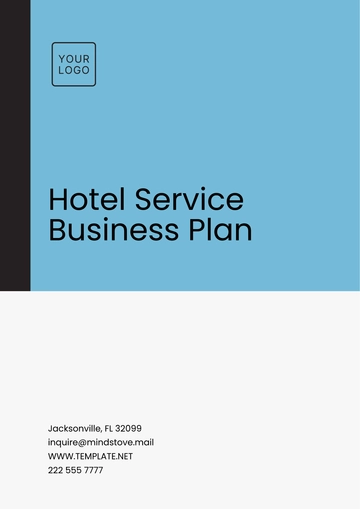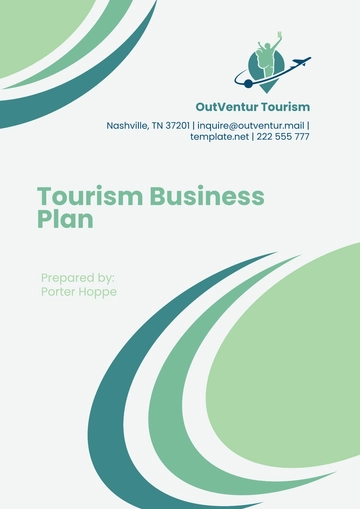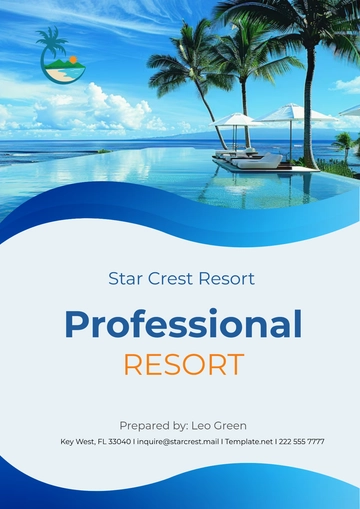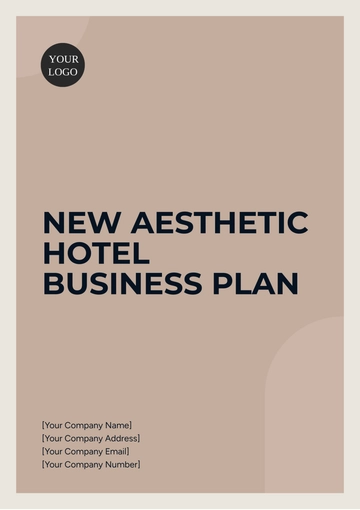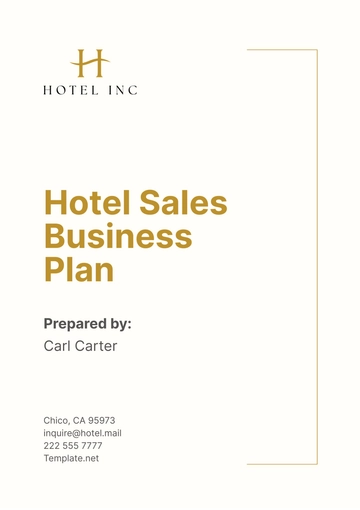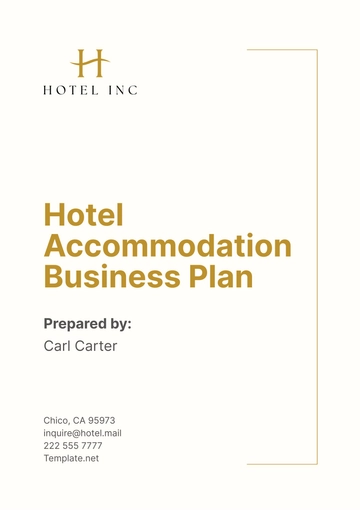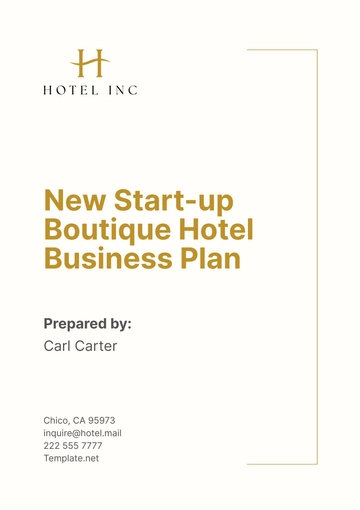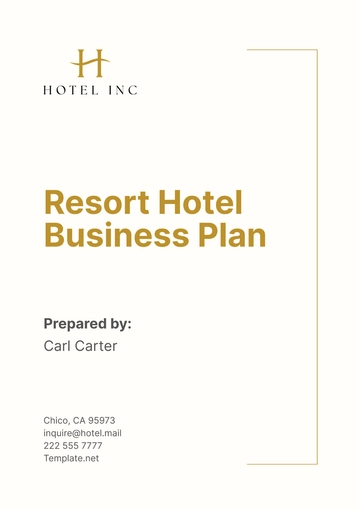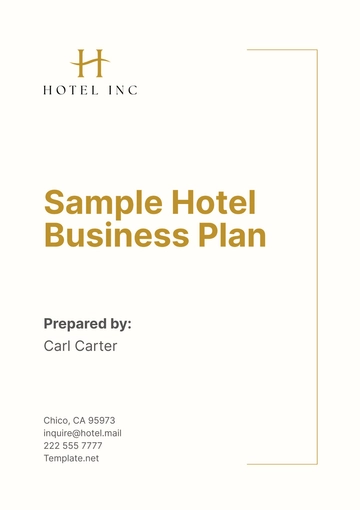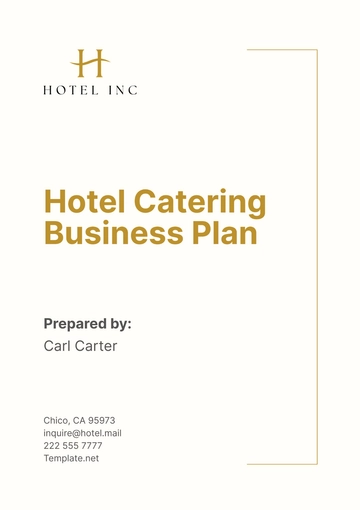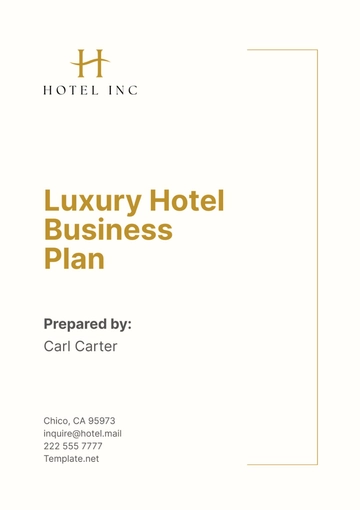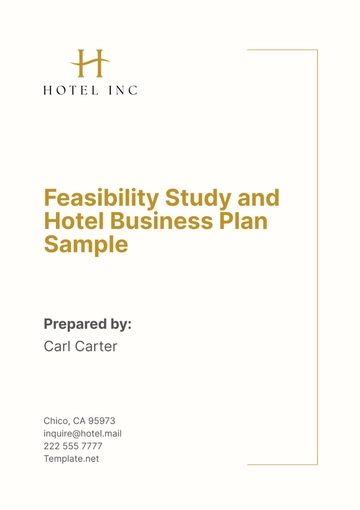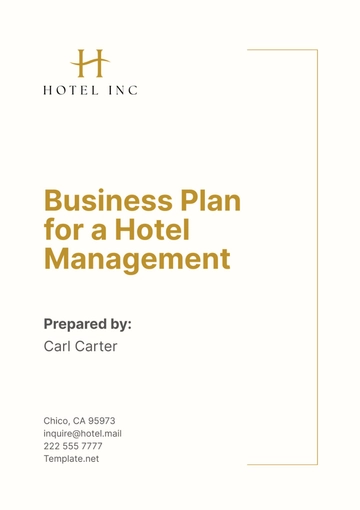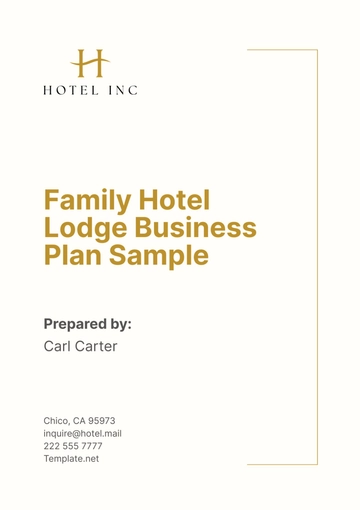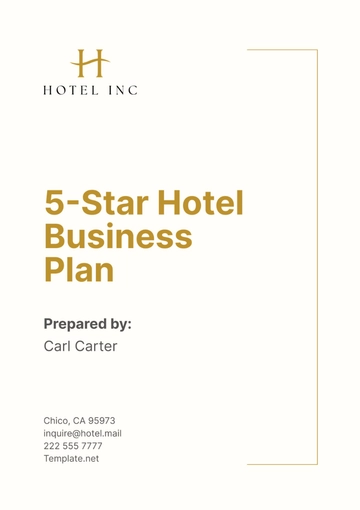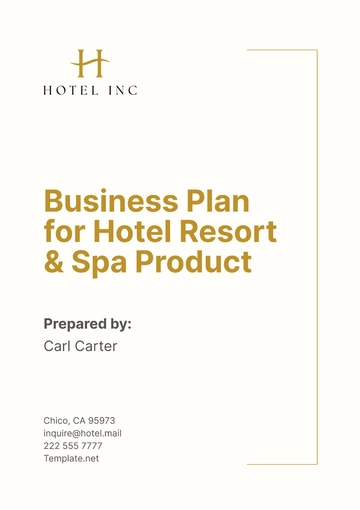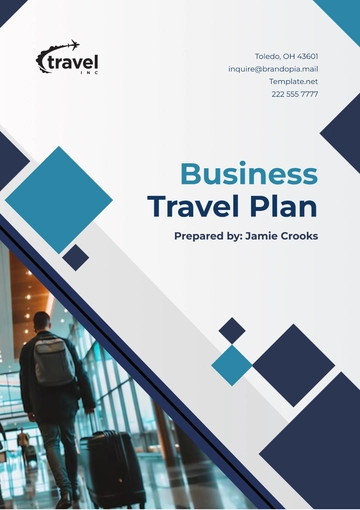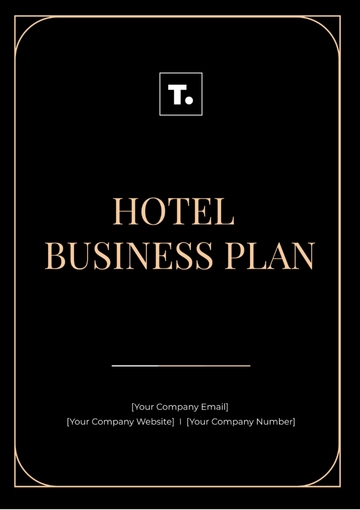Free New Start-up Boutique Hotel Business Plan
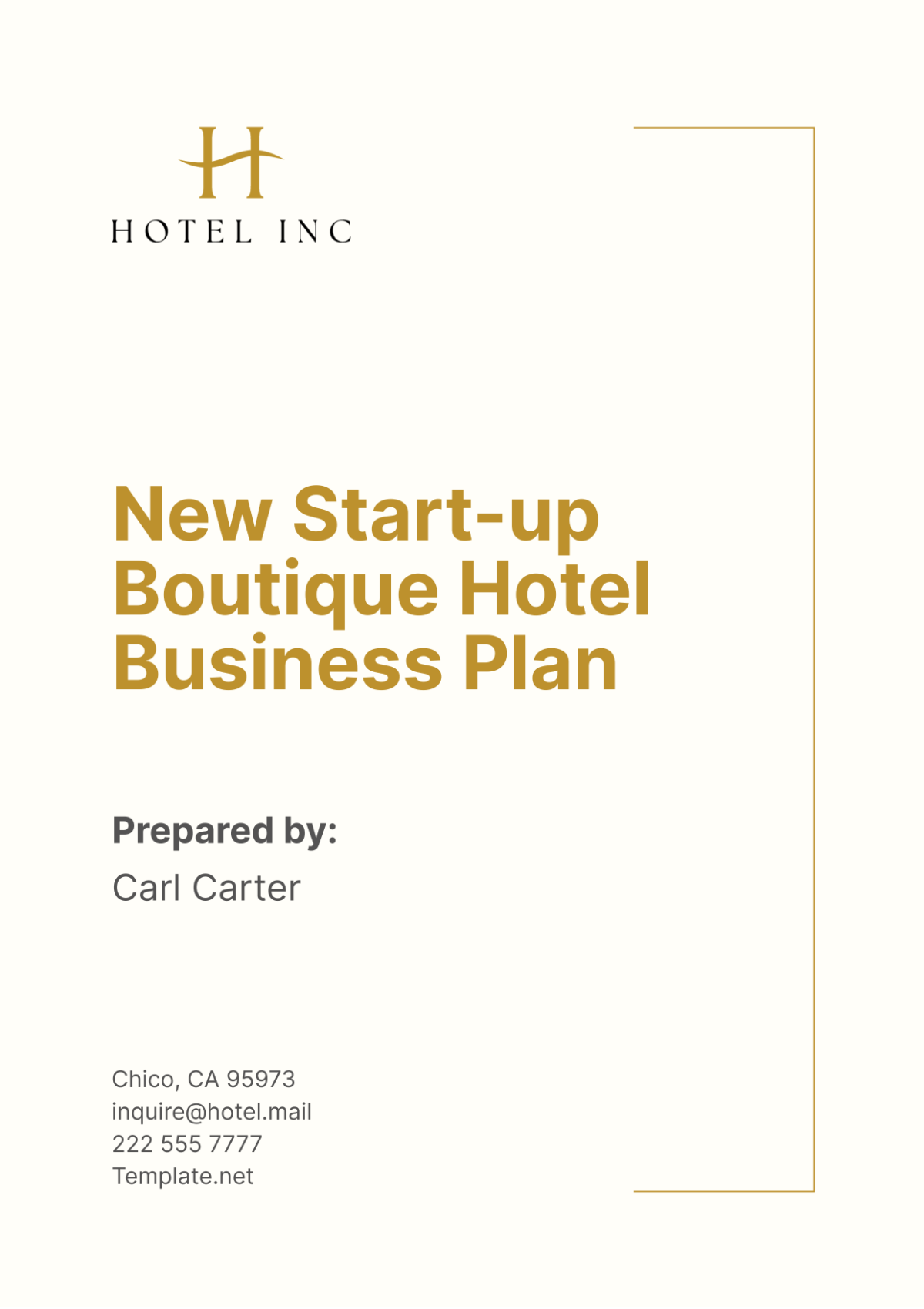
I. Executive Summary
A. Introduction
[Your Company Name] Boutique Hotel, located in the heart of downtown [City], is poised to become the epitome of luxury hospitality in the region. With 10 years of experience in the hospitality industry, our team is committed to providing an exceptional guest experience that exceeds expectations. Our hotel features 50 meticulously designed guest rooms and suites, each offering modern amenities and stylish furnishings to ensure comfort and relaxation for our guests. From our rooftop bar with panoramic city views to our gourmet restaurant serving locally sourced cuisine, every aspect of [Your Company Name] is designed to delight and impress our discerning clientele.
B. Business Objectives
At [Your Company Name], our mission is to redefine luxury hospitality by delivering personalized service, unparalleled comfort, and memorable experiences to every guest. Our key objectives include:
Achieving an average annual occupancy rate of 80% within the first year of operation.
Generating revenues of $2,000,000 in the first year, with annual growth of 10% over the next five years.
Establishing [Your Company Name] as the top-rated boutique hotel in [City] on major review platforms, with an average rating of 4.5 stars.
C. Market Analysis
The hospitality industry in [City] is experiencing steady growth, driven by increasing tourism and a growing demand for unique and boutique accommodations. According to recent market research, the boutique hotel segment is projected to grow at a compound annual growth rate (CAGR) of 8% over the next five years. With its vibrant cultural scene, diverse culinary offerings, and thriving business community, [City] is an ideal location for [Your Company Name] to thrive and capture market share.
II. Business Description
A. Company Overview
[Your Company Name] Boutique Hotel is a 5-star luxury hotel located in downtown [City]. Our hotel features 50 beautifully appointed guest rooms and suites, each designed to provide a tranquil retreat for our guests. In addition to our accommodations, we offer a range of amenities, including:
Amenities | Description |
|---|---|
Rooftop Bar | Offering panoramic views of the city skyline |
Fine Dining Restaurant | Serving locally sourced cuisine in an elegant setting |
Spa & Wellness Center | Providing a range of rejuvenating treatments and services |
B. Mission Statement
At [Your Company Name], our mission is to create unforgettable experiences for our guests by providing exceptional service, luxurious accommodations, and a warm, welcoming atmosphere. We strive to exceed the expectations of every guest and leave a lasting impression that keeps them coming back time and time again.
C. Vision Statement
Our vision is to become the premier destination for travelers seeking a unique and memorable hospitality experience. Through innovation, creativity, and a commitment to excellence, we aim to set new standards of luxury and hospitality in the industry.
D. Values
Excellence: We are committed to providing the highest quality service and accommodations to our guests.
Integrity: We conduct our business with honesty, transparency, and ethical integrity.
Innovation: We continually seek new ways to enhance the guest experience and improve our operations.
Sustainability: We are dedicated to minimizing our environmental impact and contributing positively to the communities in which we operate.
E. Business Model
[Your Company Name] operates on a premium pricing model, offering luxury accommodations and personalized service at competitive rates. Our revenue streams include room bookings, food and beverage sales, spa services, and event hosting. Additionally, we may explore opportunities for partnerships and collaborations to further enhance our offerings and expand our reach.
III. Market Analysis
A. Industry Overview
The hospitality industry in [City] is characterized by a diverse range of accommodations, including hotels, resorts, and boutique properties. Recent trends indicate a growing demand for unique and personalized experiences, driving the popularity of boutique hotels among discerning travelers. According to industry reports, the hospitality sector in [City] generates an estimated $20 billion in annual revenue, with boutique hotels accounting for approximately 25% of the market share.
B. Target Market
Our target market consists of affluent travelers seeking luxury accommodations and personalized service. This includes business travelers, leisure travelers, and special event guests who value exclusivity, comfort, and attention to detail. Market research indicates that the average annual household income of our target demographic is $80,000, with a significant portion of our target market coming from [Age Range] age group.
C. Competitive Analysis
While there are several boutique hotels in [City], [Your Company Name] stands out for its distinctive blend of luxury, style, and personalized service. By offering unique amenities and experiences, we aim to differentiate ourselves from competitors and capture a significant share of the market. Key competitors include [Competitor 1], [Competitor 2], and [Competitor 3], each of which has its own unique selling points and target demographics.
D. SWOT Analysis
Strengths | Weaknesses |
Prime Location | High Initial Startup Costs |
Luxurious Amenities | Reliance on Seasonal Tourism |
Strong Brand Identity | Limited Brand Recognition |
Opportunities | Threats |
Expansion into New Markets | Economic Downturns |
Strategic Partnerships | Intense Competition |
Innovative Guest Experiences | Regulatory Challenges |
IV. Marketing Plan
A. Branding and Positioning
[Your Company Name] will position itself as the epitome of luxury and sophistication in the hospitality industry. Through strategic branding initiatives and targeted marketing campaigns, we will establish [Your Company Name] as the premier choice for discerning travelers seeking unparalleled luxury and personalized service. Our branding efforts will focus on highlighting our unique selling points, such as our prime location, luxurious accommodations, and exceptional service.
B. Promotional Strategies
Digital Marketing: Leveraging social media platforms, email marketing, and online advertising to reach our target audience and drive engagement. We will utilize high-quality visuals and engaging content to showcase the unique features and amenities of [Your Company Name].
Influencer Partnerships: Collaborating with influencers and tastemakers in the travel and lifestyle space to promote [Your Company Name] and create buzz around our brand. We will partner with influencers who align with our target demographic and can help us reach new audiences.
Events and Sponsorships: Hosting exclusive events and sponsoring local initiatives to raise brand awareness and attract affluent travelers to our hotel. We will participate in relevant industry events, sponsor local festivals and cultural events, and host VIP experiences to engage with our target market and showcase the luxury offerings of [Your Company Name].
C. Pricing Strategy
[Your Company Name] will implement a dynamic pricing strategy that takes into account factors such as seasonality, demand, and competitor pricing. By offering competitive rates and value-added packages, we aim to maximize revenue and occupancy rates throughout the year. We will also offer special promotions and discounts during off-peak seasons to incentivize bookings and increase occupancy levels.
D. Distribution Channels
In addition to direct bookings through our website and reservation center, [Your Company Name] will partner with online travel agencies (OTAs) and travel agents to expand our reach and attract guests from around the world. We will leverage OTAs such as Expedia, Booking.com, and Airbnb to reach travelers who prefer to book through third-party platforms. Additionally, we will establish relationships with corporate travel agencies and tour operators to attract business travelers and group bookings. By diversifying our distribution channels, we aim to maximize visibility and drive bookings for [Your Company Name] Boutique Hotel.
V. Operations Plan
A. Location and Facilities
[Your Company Name] Boutique Hotel is strategically located in downtown [City], providing easy access to major attractions, business centers, and transportation hubs. Our hotel boasts [50] floors of elegant design and contemporary architecture, housing [120] luxurious guest rooms and suites.
Our Facilities Include:
Facility | Description |
|---|---|
Rooftop Bar | Offering breathtaking views of the city skyline |
Fine Dining Restaurant | Serving exquisite cuisine crafted by renowned chefs |
Spa & Wellness Center | Providing a range of rejuvenating treatments and services |
Fitness Center | Equipped with state-of-the-art exercise machines and amenities |
Conference Rooms | Ideal for business meetings, conferences, and events |
B. Staffing and Training
We recognize that our staff play a crucial role in delivering exceptional service and creating memorable experiences for our guests. As such, we are committed to hiring a team of experienced professionals who share our passion for hospitality and dedication to excellence.
Our Staffing Plan:
Position | Number of Staff | Responsibilities |
|---|---|---|
General Manager | 1 | Overseeing day-to-day operations and strategic planning |
Front Desk Staff | 4 | Handling check-ins, check-outs, and guest inquiries |
Concierge | 2 | Assisting guests with reservations, recommendations, and requests |
Housekeeping | 10 | Ensuring cleanliness and comfort in guest rooms and public areas |
Restaurant Staff | 8 | Providing attentive service and culinary expertise |
Spa Therapists | 6 | Performing massages, facials, and body treatments |
Maintenance Crew | 3 | Conducting repairs and ensuring the upkeep of facilities |
We will invest in comprehensive training programs to equip our staff with the skills and knowledge they need to excel in their roles. Training will cover areas such as customer service, communication, problem-solving, and product knowledge, ensuring that every member of our team is equipped to deliver a seamless and memorable guest experience.
C. Quality Control
Maintaining high standards of quality and service is paramount to the success of [Your Company Name] Boutique Hotel. To ensure consistency and guest satisfaction, we will implement a rigorous quality control system that includes regular inspections, guest feedback analysis, and ongoing staff training and development initiatives.
Our Quality Control Measures Include:
Regular inspections of guest rooms, public areas, and facilities to identify any issues or areas for improvement.
Soliciting feedback from guests through surveys, reviews, and comment cards to gauge satisfaction levels and address any concerns promptly.
Providing ongoing training and development opportunities for staff to enhance their skills and stay updated on industry best practices.
D. Technology Integration
We recognize the importance of leveraging technology to streamline operations, enhance the guest experience, and optimize efficiency. [Your Company Name] Boutique Hotel will invest in state-of-the-art technology solutions to facilitate seamless communication, streamline check-in/check-out processes, and personalize the guest experience.
Our Technology Integration Plan Includes:
Implementing a cloud-based property management system (PMS) to manage reservations, guest profiles, and billing information.
Offering mobile check-in/check-out options to provide guests with a convenient and efficient experience.
Utilizing guest engagement platforms to personalize communications and tailor services to individual preferences.
Installing energy-efficient systems and smart technologies to minimize environmental impact and reduce operating costs.
VI. Financial Plan
A. Startup Costs [Your Company Name] Boutique Hotel anticipates initial startup costs of approximately $[2,000,000], including property acquisition, renovations, furnishings, equipment, and pre-opening expenses.
Our Startup Costs Breakdown:
Expense | Amount |
|---|---|
Property Acquisition | $[5,000,000] |
Renovations | $[7,000,000] |
Furnishings & Equipment | $[3,000,000] |
Pre-opening Expenses | $[1,000,000] |
Total Startup Costs | $[2,000,000] |
We will finance these costs through a combination of equity investment, loans from financial institutions, and potential partnerships.
B. Revenue Projections
Based on market research and financial analysis, we project steady revenue growth over the next five years. Our revenue streams will primarily come from room bookings, food and beverage sales, spa services, and event hosting. We anticipate generating revenues of $[36,000,000] in the first year of operation, with annual growth averaging 10% thereafter.
C. Expense Projections
Our primary operating expenses will include payroll, utilities, maintenance, marketing, and administrative costs. We have conducted thorough cost projections to ensure that our expenses remain in line with industry standards and revenue projections. We will also implement cost-saving measures and efficiency improvements to maximize profitability.
D. Profitability Analysis
[Your Company Name] is expected to achieve profitability within 12 months of operation, with a projected net profit margin of [56%] by the end of year five. Our financial projections are based on conservative assumptions and take into account potential risks and uncertainties in the market.
E. Funding Requirements
To support our startup and ongoing operations, [Your Company Name] is seeking $[20,000,000] in financing. This funding will be used to cover startup costs, working capital, and expansion initiatives. We are open to equity investment, debt financing, or a combination of both, depending on the terms and conditions offered by potential investors or lenders.
VII. Sustainability Plan
A. Environmental Initiatives
[Your Company Name] is committed to minimizing our environmental footprint and promoting sustainability throughout our operations. We recognize the importance of preserving natural resources and reducing our impact on the planet. To achieve this, we will implement the following environmental initiatives:
Energy Efficiency: We will invest in energy-efficient technologies and practices to reduce our energy consumption and carbon emissions. This includes LED lighting, energy-efficient appliances, and smart thermostats to optimize heating and cooling systems.
Water Conservation: We will implement water-saving measures, such as low-flow fixtures, water-efficient landscaping, and rainwater harvesting systems, to minimize water usage and promote conservation.
Waste Reduction: We will implement recycling programs, composting initiatives, and waste reduction strategies to minimize the amount of waste generated by our operations. This includes reducing single-use plastics, sourcing sustainable materials, and partnering with local recycling facilities.
Green Procurement: We will prioritize environmentally friendly products and suppliers, choosing eco-friendly cleaning products, recycled paper products, and sustainable furnishings and amenities wherever possible.
B. Community Engagement
At [Your Company Name], we believe in giving back to the communities in which we operate. We are committed to supporting local initiatives and charitable organizations that make a positive impact on the environment and society. Our community engagement efforts will include:
Volunteer Programs: We will encourage our staff to participate in volunteer activities and community service projects, such as beach cleanups, tree plantings, and habitat restoration efforts.
Local Partnerships: We will partner with local organizations, schools, and nonprofits to support environmental education programs, sustainability initiatives, and community development projects.
Charitable Donations: We will donate a portion of our profits to local charities and environmental organizations that align with our values and mission. This may include organizations focused on conservation, environmental advocacy, and social justice.
C. Corporate Social Responsibility
[Your Company Name] is committed to upholding the highest standards of corporate social responsibility. We believe that businesses have a responsibility to act ethically, contribute positively to society, and make a difference in the world. Our corporate social responsibility initiatives will include:
Ethical Labor Practices: We will ensure fair wages, safe working conditions, and opportunities for professional development and advancement for all employees. We will not tolerate discrimination, harassment, or any form of exploitation in the workplace.
Diversity and Inclusion: We will promote diversity and inclusion in our workforce, welcoming people of all backgrounds, identities, and perspectives. We will strive to create a workplace culture that values and celebrates diversity and fosters a sense of belonging for all employees.
Philanthropy and Giving Back: We will support philanthropic causes and charitable organizations that align with our values and mission. This may include donating a portion of our profits to nonprofit organizations, sponsoring community events, and volunteering our time and resources to support those in need.
VIII. Risk Management Plan
A. Identification of Risks
[Your Company Name] has identified several potential risks and uncertainties that could impact our business operations. These risks include:
Economic Downturns: Economic recessions or downturns could lead to a decrease in consumer spending and travel demand, impacting our revenue and profitability.
Intense Competition: The hospitality industry is highly competitive, with numerous hotels and accommodations vying for market share. Intense competition could affect our ability to attract guests and maintain pricing power.
Regulatory Challenges: Compliance with local, state, and federal regulations, such as zoning laws, building codes, and health and safety standards, could pose challenges and incur additional costs for our business.
Natural Disasters: Natural disasters, such as hurricanes, earthquakes, or floods, could disrupt our operations, damage property, and impact our ability to serve guests.
B. Risk Mitigation Strategies
To mitigate these risks, [Your Company Name] will implement the following strategies:
Diversification: We will diversify our revenue streams and target markets to reduce reliance on any single source of income and mitigate the impact of economic downturns or fluctuations in demand.
Brand Differentiation: We will differentiate [Your Company Name] from competitors by emphasizing our unique selling points, such as our prime location, luxury amenities, and personalized service, to attract guests and maintain pricing power.
Compliance and Due Diligence: We will ensure compliance with all relevant regulations and laws governing our operations, conducting thorough due diligence and consulting legal and regulatory experts as needed to mitigate compliance risks.
Emergency Preparedness: We will develop and implement emergency preparedness and response plans to mitigate the impact of natural disasters or unforeseen events, ensuring the safety of our guests and staff and minimizing disruption to our operations.
IX. Exit Strategy
A. Sale of Property
In the event that [Your Company Name] decides to exit the business, one potential option is to sell the hotel property to a qualified buyer or investor. This could involve listing the property on the market and engaging with real estate brokers or investment firms to find a suitable buyer. The sale of the property could result in a substantial return on investment for stakeholders, depending on market conditions and property valuation.
B. Liquidation of Assets
Another option for exiting the business is to liquidate assets and distribute proceeds to stakeholders. This could involve selling furniture, equipment, and other assets owned by [Your Company Name] and using the proceeds to repay debts and distribute funds to investors. Liquidation may be necessary if selling the property is not feasible or if stakeholders prefer to exit the business quickly and efficiently.
C. Merger or Acquisition
[Your Company Name] may also explore opportunities for merger or acquisition with other hospitality companies. This could involve entering into negotiations with potential acquirers or merger partners to combine resources, expand market presence, and create synergies that benefit all parties involved. A merger or acquisition could result in a buyout of [Your Company Name] by a larger hospitality company or the formation of a new entity through a merger of equals.
D. Strategic Partnerships
Alternatively, [Your Company Name] may seek strategic partnerships with other companies in the hospitality industry. This could involve entering into joint ventures, licensing agreements, or franchise partnerships with established hotel chains or hospitality brands. Strategic partnerships could provide access to additional resources, expertise, and distribution channels, allowing [Your Company Name] to expand its reach and grow its business in collaboration with trusted partners.
X. Conclusion
[Your Company Name] Boutique Hotel is poised to redefine luxury hospitality in [City] and beyond. With a commitment to excellence, innovation, and sustainability, we are confident that [Your Company Name] will become the premier destination for travelers seeking a truly exceptional hospitality experience. We invite investors, partners, and guests to join us on this exciting journey as we embark on our mission to create unforgettable memories and lasting impressions.
As we move forward, [Your Company Name] remains dedicated to upholding our core values of excellence, integrity, innovation, and sustainability. We are committed to exceeding the expectations of our guests, supporting our employees, and making a positive impact on the communities in which we operate. With a clear vision, strong leadership, and a passionate team, we are poised for success and look forward to welcoming guests to [Your Company Name] Boutique Hotel for years to come.
- 100% Customizable, free editor
- Access 1 Million+ Templates, photo’s & graphics
- Download or share as a template
- Click and replace photos, graphics, text, backgrounds
- Resize, crop, AI write & more
- Access advanced editor
Launch your boutique hotel venture with confidence using our New Start-up Boutique Hotel Business Plan Template on Template.net. This comprehensive document provides a roadmap for planning and launching a new boutique hotel, covering aspects such as market analysis, financial projections, and marketing strategies. Customize to align with your unique business goals and attract investors and stakeholders.
You may also like
- One Page Business Plan
- Coffee Shop Business Plan
- Restaurant Business Plan
- Food Business Plan
- Real Estate Business Plan
- Executive Summary Business Plan
- Cover Page Business Plan
- Nonprofit Business Plan
- Daycare Business Plan
- Construction Business Plan
- Startup Business Plan
- Medical Business Plan
- Bakery Business Plan
- Service Plan
- Hotel Business Plan
- Catering Business Plan
- School Business Plan
- Healthcare Business Plan
- Transportation Plan
- Sports Plan
- Car Wash Business Plan
- Salon Business Plan
- Clothing Business Plan
- Farming Business Plan
- Boutique Plan
